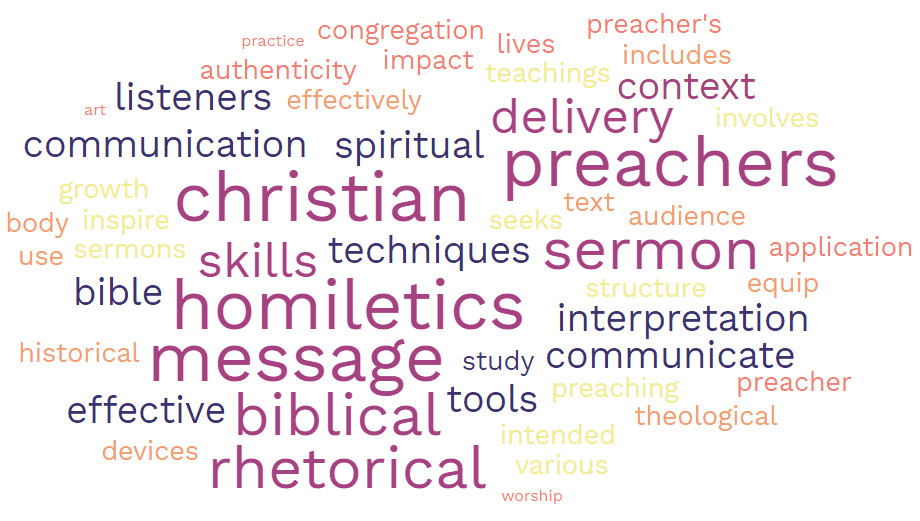
National Association of Christian Ministers How to Series: Ministry
Christian homiletics is the study and practice of preaching in the context of Christian worship. It involves the art and science of preparing and delivering sermons, which are intended to convey the teachings of the Bible, inspire and edify the listeners, and encourage spiritual growth and transformation.
Homiletics encompasses various aspects of sermon preparation and delivery, including biblical interpretation, sermon structure, rhetorical techniques, and effective communication skills. It seeks to equip preachers with the necessary tools to effectively communicate the message of the Scriptures to their congregations.
Here are some key elements and considerations in Christian homiletics:
1. Biblical Interpretation: Preachers engage in careful study of the biblical text, aiming to understand its original meaning, historical context, and theological significance. This involves employing various exegetical methods and tools to uncover the intended message of the passage.
2. Sermon Structure: Preachers work on organizing their sermons in a logical and coherent manner. This typically includes an introduction to capture the attention of the audience, a body that develops the main points of the message, and a conclusion that provides a clear takeaway or call to action.
3. Rhetorical Techniques: Effective use of rhetorical devices and persuasive techniques can enhance the impact of a sermon. Preachers may employ storytelling, illustrations, metaphors, analogies, and other rhetorical devices to make the message more engaging and memorable.
4. Application: Application is a crucial aspect of Christian preaching. The preacher seeks to bridge the ancient biblical text with the contemporary lives of the listeners, providing practical insights and guidance on how to live out the teachings of Scripture in their daily lives.
5. Authenticity and Spirituality: Christian homiletics emphasizes the preacher’s authenticity and personal connection with the message. A preacher’s own spiritual journey and relationship with God can significantly impact the delivery and reception of the sermon.
6. Contextualization: Homiletics takes into account the cultural, social, and historical context of the congregation. Preachers strive to communicate the timeless truths of the Bible in a way that is relevant and meaningful to their particular audience.
7. Delivery and Communication: Effective communication skills are essential for a preacher. This includes vocal delivery, body language, use of visual aids (if applicable), and the ability to connect with the listeners on an emotional and intellectual level.
Overall, Christian homiletics aims to equip preachers with the tools and skills to effectively communicate the message of the Bible, inspire faith, and facilitate spiritual growth within the congregation. It is a discipline that combines theological knowledge, biblical interpretation, rhetorical skills, and a heart for ministry.





